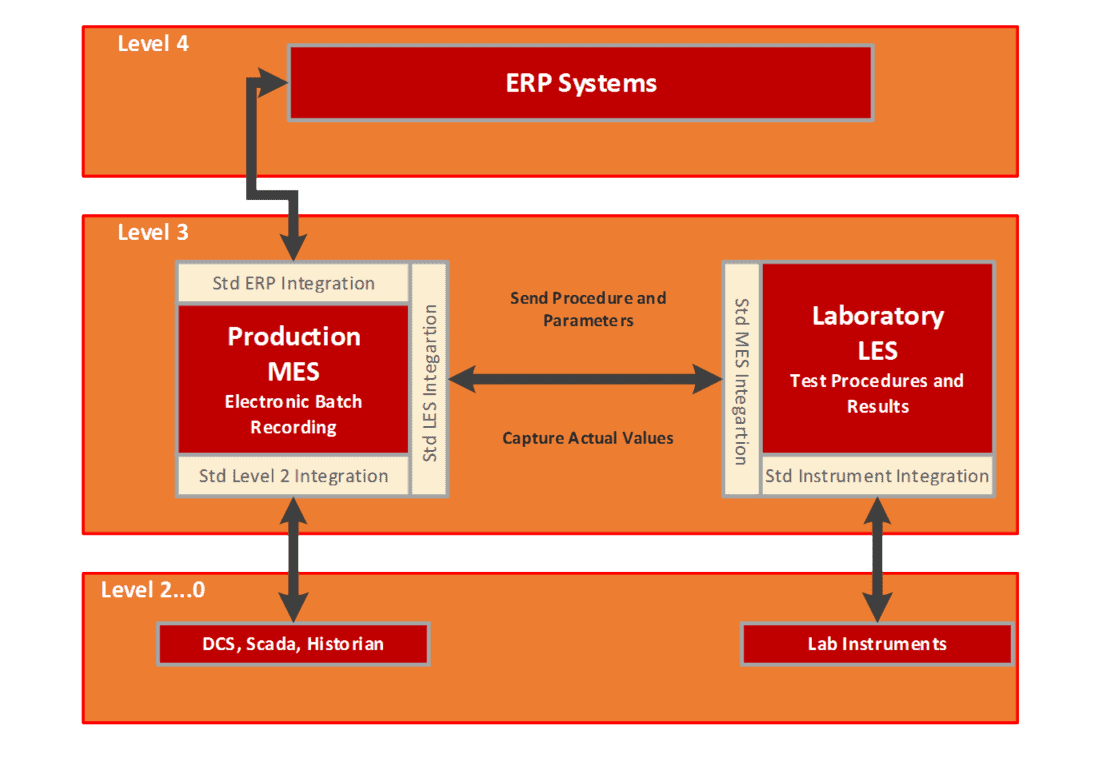Integrating a Manufacturing Execution System with Oracle JD Edwards
A manufacturing execution system (MES) is one of the many integration solutions offered by Oracle JD Edwards. Retailers can use manufacturing execution systems to receive and transmit data from equipment. In this blog post, I explain how a MES works and its integration requirements for Oracle JD Edwards (JDE).
In this blog post, I’d like to talk about an important feature of Oracle JD Edwards (JDE): integration. As an enterprise resources planner (ERP), JDE has a broad set of specialized systems that permit integration, including the manufacturing execution system (MES). This integration functionality is available for any JDE module.
In the manufacturing and industrial process, the integration requirements for a ERP and MES are very common. These requirements come from the nature of the two systems: ERPs are oriented to manage data at the process level and to consolidate all possible processes of a company into a single, integrated vision. On the opposite end, manufacturing execution systems are designed to control and receive data from equipment such as production levels, measurements, dispense, quality, calibration, etc.
Manufacturing execution systems are extended by different applications that collect many types of data. Most of the data remains in the MES database as a source of information for tracking and regulatory requirements, but work order management may require data to be executed in the ERP in order to integrate with the rest of the enterprise operations.
Types of Integration Solutions
Depending on the specific industry requirements, there are a variety of solutions. What the majority of solutions have in common is that the control and execution remains in the MES and the planning process is executed in the ERP.
JD Edwards’ 3 tier architecture, combined with the leverage offered by adapting Oracle integration technologies, has enabled a rapid delivery of modern techniques for interacting with JD Edwards’ core ERP and other industry solutions. Internet of Things (IoT) and mobility can and should be viewed as new integration paradigms. Oracle JD Edwards EnterpriseOne (E1) rapidly established large mobile applications; JDE customers and partners are already utilizing JDE’s existing integration tools for machine to machine IoT.
How JD Edwards is Different
JDE comes with a broad, standard set of integration technologies as part of its foundation: APIs, RTEs, BSSVs, EDI, SOA Suite Integration, Batch Processes, and more.
As Oracle Cloud applications mature and become widely accepted in the market place, customers and prospects will want to reap the benefits of a co-existing strategy with Oracle Applications Unlimited. There are JDE-delivered business interfaces available today for some of the Fusion Cloud applications, and in the future we absolutely expect the JD Edwards ecosystem to help us address the need for integration with Oracle Cloud Applications. Providing easy and cost effective integration to Oracle Cloud Applications will be paramount to ensuring customer success.
Manufacturing Execution System Use Case
Our client, a biotechnology company, had several challenging requirements for their systems integration:
In the end, the integration was successful and was built with consideration of the integration between new branches and the company’s manufacturing processes.
An example of the solution map:

The integration maintains all inventory transactions at ERP level to manage the inventory information that is integrated with Supply Chain. At the MES level, LIMS maintained all the quality and measurement records for FDA compliance. Both databases are linked using key data like the work order number, item number, lot number, and item ledger record number.
Here’s how the data flows between JD Edwards and a MES:

As is shown in this example, the integration flexibility among different systems delivers complete manufacturing solutions with JDE as integrator and central data manager. It applies to any industry or manufacturing type.
Based on the requirements, Oracle can offer the basic manufacturing suite or include specialized solutions like PLM or Production Scheduler to solve end-to-end business flows for internal and integrated quality and planning. This enables collaboration by using integrated social solutions to resolve shop floor issues.
There’s more to explore at Smartbridge.com!
Sign up to be notified when we publish articles, news, videos and more!
Other ways to
follow us:


